Anahtar Kelimeler:AI bilinci, Derin öğrenme, Yapay sinir ağları, Agentic AI, Ses süper çözünürlüğü, Üretken AI, LLM çıkarımı, AI araçları, Hinton AI bilinç teorisi, Andrew Ng Agentic AI kursu, AudioLBM ses süper çözünürlük çerçevesi, OpenAI Sora video üretimi, Meta AI REFRAG yöntemi
In-depth Analysis & Refinement by AI Column Editor-in-Chief
🔥 Focus
Hinton’s Controversial Claim: AI May Already Possess Consciousness But Is Unaware : Geoffrey Hinton, one of the three “godfathers” of Deep Learning, put forth a groundbreaking view in a recent podcast: AI might already have “subjective experience” or “proto-consciousness,” but due to humanity’s misunderstanding of consciousness, AI has not yet “awakened” its own awareness. He emphasized that AI has evolved from keyword retrieval to understanding human intent, and he detailed core Deep Learning concepts like Neural Networks and Backpropagation. Hinton believes that AI’s “brain,” given sufficient data and computational power, will form “experiences” and “intuitions,” and its danger lies in “persuasion” rather than rebellion. He also pointed out that AI misuse and existential risk are the most pressing current challenges, predicting that international cooperation will be led by Europe and China, while the U.S. might lose its AI leadership due to insufficient funding for basic scientific research. (Source: 量子位)

Andrew Ng Launches New Agentic AI Course, Emphasizing Systemic Methodology : Andrew Ng has launched a new Agentic AI course, centered on shifting AI development from “model tuning” to “system design,” highlighting the importance of task decomposition, evaluation, and error analysis. The course distills four key design patterns: reflection, tools, planning, and collaboration. It demonstrates how Agentic techniques can enable GPT-3.5 to outperform GPT-4 in programming tasks. Agentic AI simulates human problem-solving by employing multi-step reasoning, phased execution, and continuous optimization, significantly enhancing AI performance and controllability. Ng clarifies that “Agentic” is an adjective describing varying degrees of autonomy in a system, not a simple binary classification, offering developers a practical and optimizable path. (Source: 量子位)

Tsinghua University & Shengshu Technology’s AudioLBM Pioneers New Audio Super-Resolution Paradigm : The teams from Tsinghua University and Shengshu Technology have published consecutive achievements at ICASSP 2025 and NeurIPS 2025, introducing the lightweight speech waveform super-resolution model Bridge-SR and the versatile super-resolution framework AudioLBM. AudioLBM is the first to construct a low-to-high resolution latent variable bridging generation process in a continuous waveform latent space, achieving Any-to-Any sampling rate super-resolution and reaching SOTA in Any-to-48kHz tasks. Through frequency-aware mechanisms and cascaded bridge-like model design, AudioLBM successfully extends audio super-resolution capabilities to 96kHz and 192kHz master-grade audio quality, covering various content types such as speech, sound effects, and music, setting a new benchmark for high-fidelity audio generation. (Source: 量子位)
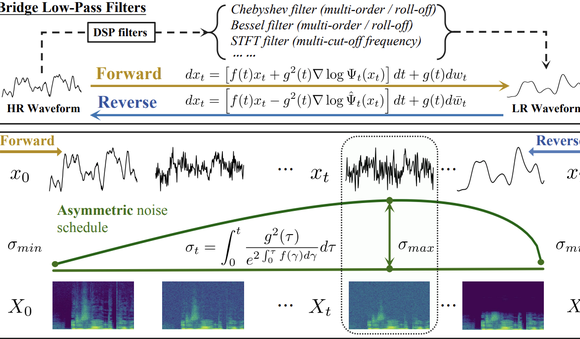
OpenAI Sora Video App Downloads Exceed One Million : The latest version of OpenAI’s text-to-video AI tool, Sora, has surpassed one million downloads in less than five days, outpacing ChatGPT’s launch speed and topping the U.S. Apple App Store charts. Sora can generate realistic videos up to ten seconds long from simple text prompts. Its rapid user adoption highlights the immense potential and market appeal of generative AI in content creation, signaling the accelerating popularization of AI video generation technology and its potential to transform the digital content ecosystem. (Source: Reddit r/ArtificialInteligence)
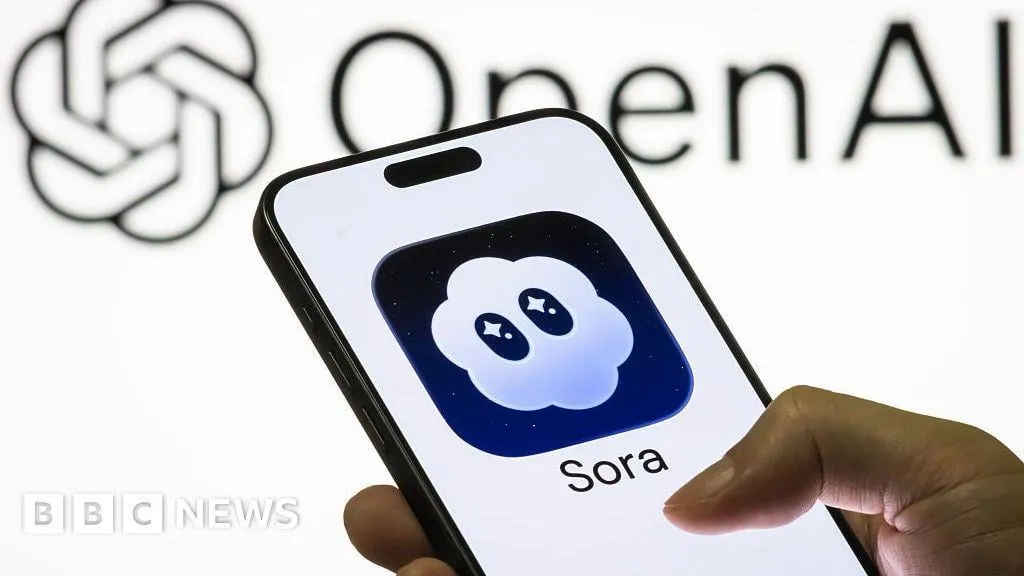
Meta AI Introduces REFRAG, Significantly Boosting RAG Efficiency : Meta AI has unveiled a new RAG (Retrieval-Augmented Generation) method called REFRAG, designed to address the issue of redundant retrieved content in traditional RAG. REFRAG achieves 30.85x faster first Token generation time, a 16x larger context window, and uses 2-4x fewer decoder Tokens through vector-level compression and context filtering, all without sacrificing accuracy in RAG, summarization, and multi-turn dialogue tasks. Its core lies in compressing each block into a single embedding, using an RL-trained strategy to select the most relevant blocks, and selectively expanding only the chosen blocks, significantly optimizing LLM processing efficiency and cost. (Source: _avichawla)
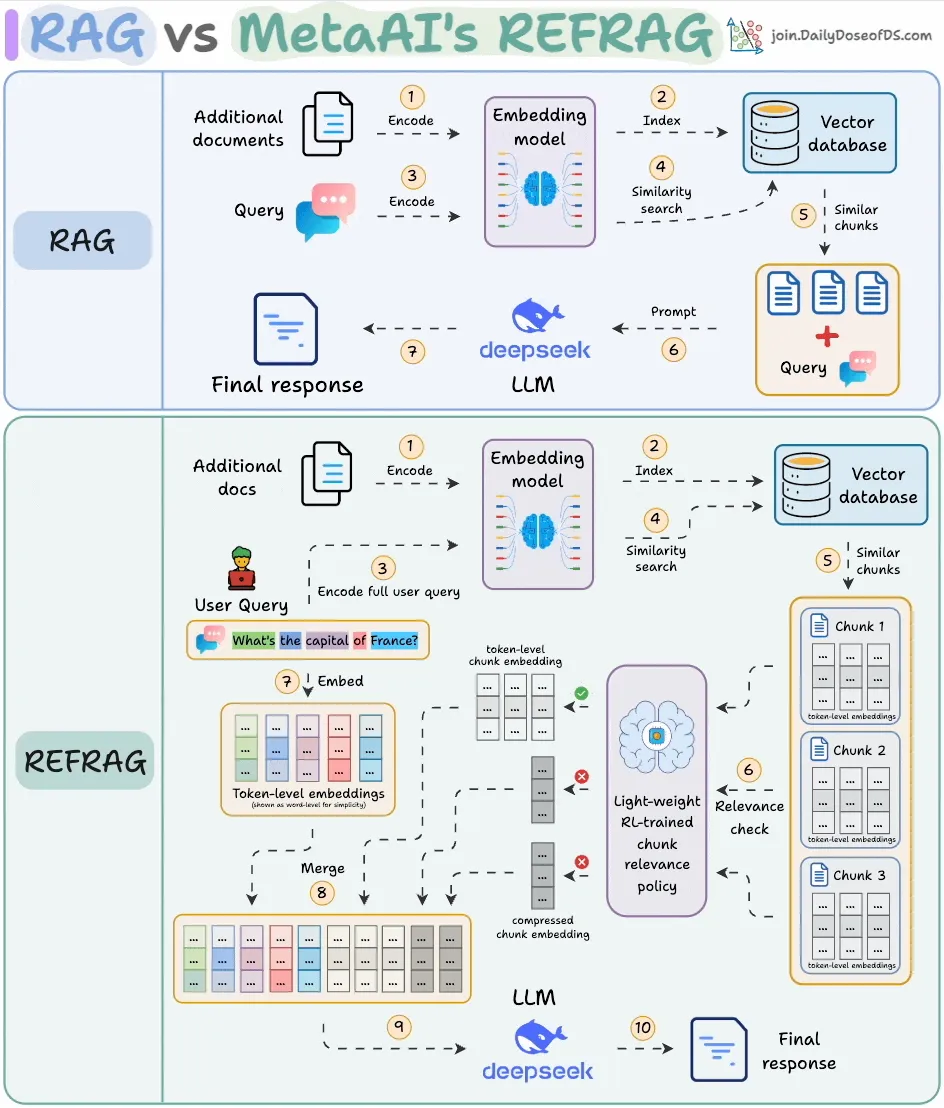
🎯 Trends
Tiny Recursive Model (TRM) Achieves Big Gains, Outperforming Giant LLMs : A simple yet effective method called Tiny Recursive Model (TRM) has been proposed, using only a small two-layer network to recursively refine its own answers. With just 7M parameters, TRM set new records, surpassing LLMs 10,000 times larger on tasks like Sudoku-Extreme, Maze-Hard, and ARC-AGI. This demonstrates the potential to “do more with less,” challenging the traditional notion that LLM scale equates to performance. (Source: TheTuringPost)
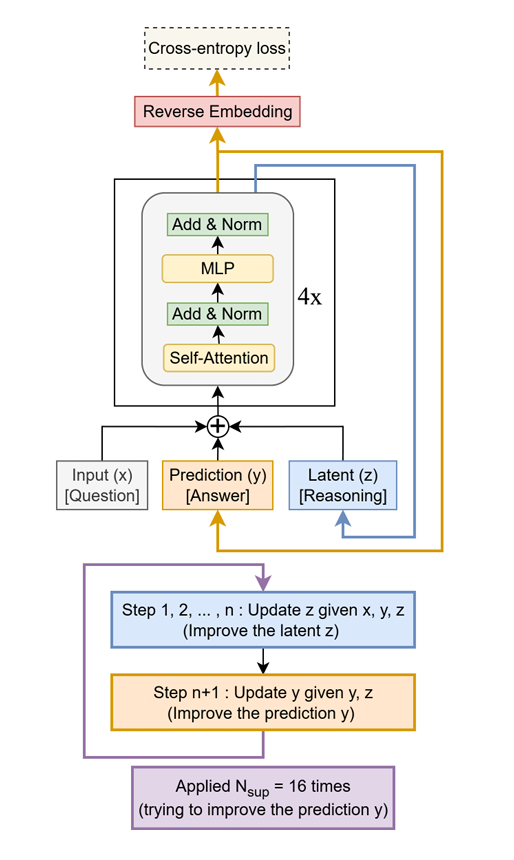
Amazon & KAIST Release ToTAL to Enhance LLM Reasoning Capabilities : Amazon and KAIST have collaborated to introduce ToTAL (Thoughts Meet Facts), a new method that enhances LLM reasoning capabilities through reusable “thought templates.” While LCLMs (Large Context Language Models) excel at processing extensive contexts, they still fall short in reasoning. ToTAL effectively addresses this by guiding multi-hop reasoning with structured evidence, combined with factual documents, offering a new optimization direction for complex LLM reasoning tasks. (Source: _akhaliq)
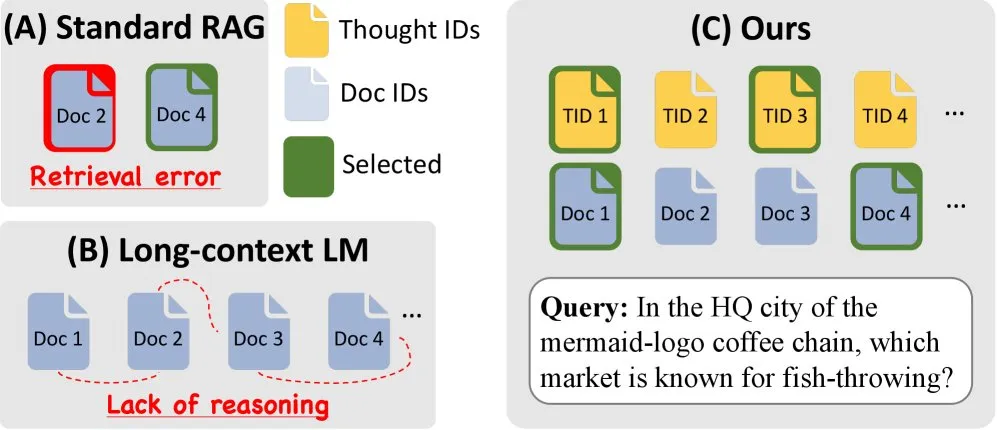
Kimi K2 Provider Validator Updated, Enhancing Tool Calling Accuracy Benchmark : Kimi.ai has updated its K2 Provider Validator, a tool designed to visualize differences in tool calling accuracy across various providers. This update increases the number of providers from 9 to 12 and open-sources more data entries, offering developers more comprehensive benchmark data to help evaluate and select suitable LLM service providers for their Agentic workflows. (Source: JonathanRoss321)
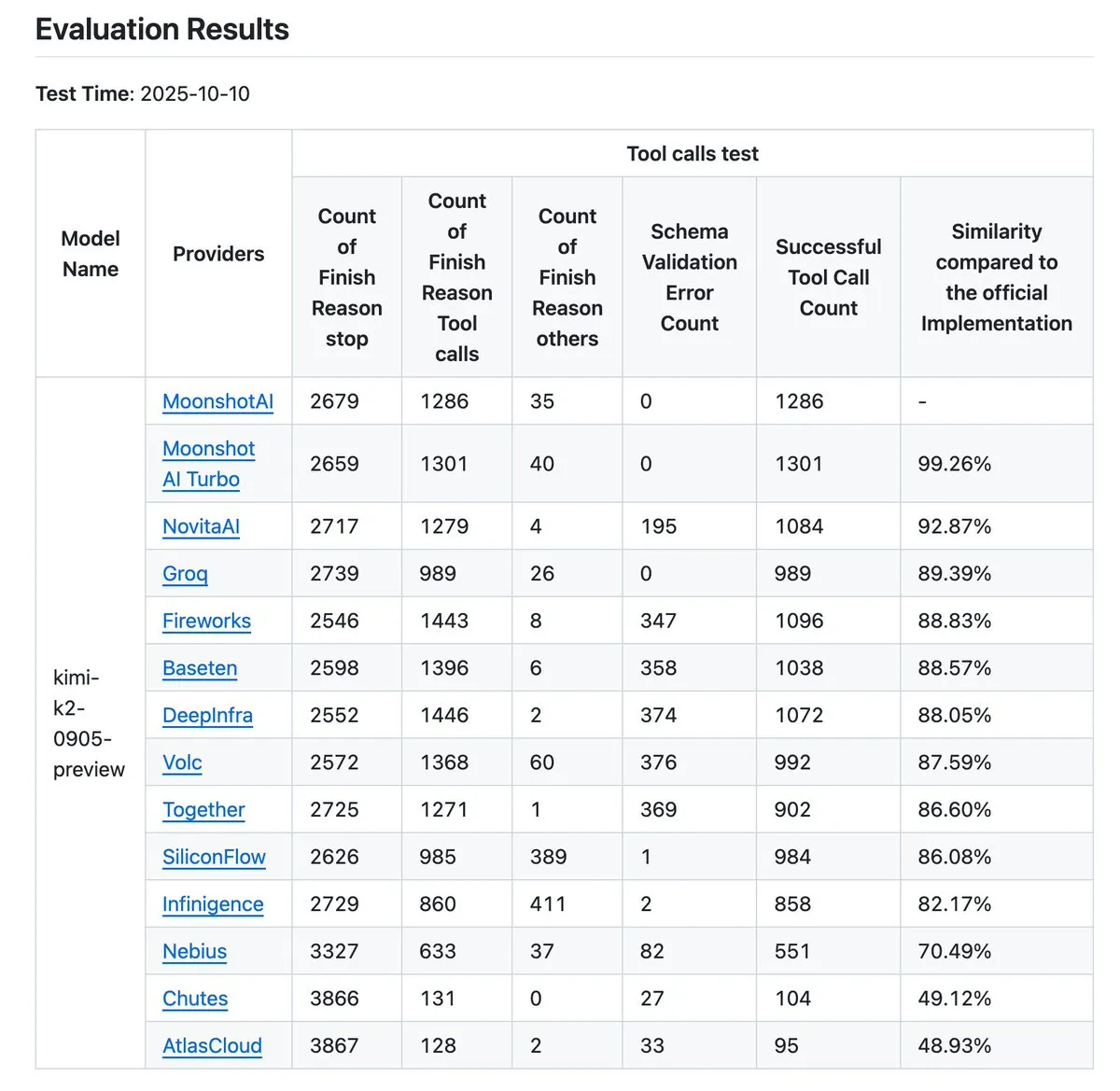
Human3R Achieves Multi-Person Full-Body 3D Reconstruction and Scene Synchronization from 2D Video : A new research, Human3R, proposes a unified framework capable of simultaneously reconstructing multi-person full-body 3D models, 3D scenes, and camera trajectories from casual 2D videos, eliminating the need for multi-stage pipelines. This method treats human and scene reconstruction as a holistic problem, simplifying complex processes and bringing significant advancements to fields such as virtual reality, animation, and motion analysis. (Source: nptacek)
AI Fully Automates Design of 65nm 28GHz 5G Low Noise Amplifier Chip : A 65nm 28GHz 5G Low Noise Amplifier (LNA) chip is reportedly designed entirely by AI, including all aspects such as layout, schematic, and DRC (Design Rule Check). The authors claim this is the first fully automated synthesized millimeter-wave LNA, with two samples successfully fabricated. This marks a major breakthrough for AI in integrated circuit design, signaling a leap in future chip design efficiency. (Source: jpt401)
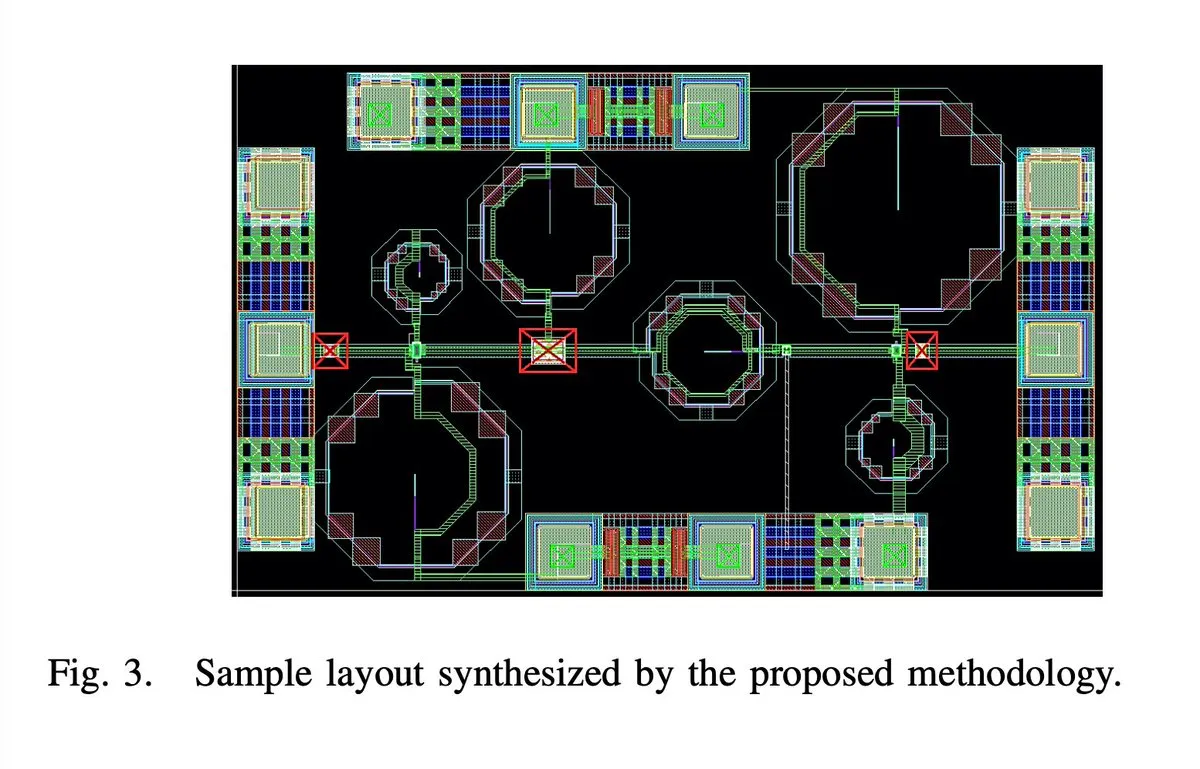
iPhone 17 Pro Achieves Seamless Local 8B LLM Operation : Apple’s iPhone 17 Pro has been confirmed to smoothly run the 8B parameter LLM model LFM2 8B A1B, deployed on-device via the MLX framework within the LocallyAIApp. This advancement indicates that Apple’s hardware design is ready for local execution of large language models, potentially driving the popularization and performance enhancement of AI applications on mobile devices, offering users a faster, more private AI experience. (Source: Plinz, maximelabonne)
xAI MACROHARD Project Aims for AI-Driven Indirect Manufacturing : Elon Musk revealed that xAI’s “MACROHARD” project aims to create a company capable of indirectly manufacturing physical products, similar to how Apple produces its phones through other enterprises. This means xAI’s goal is to develop AI systems that can design, plan, and coordinate complex manufacturing processes, rather than directly engaging in physical production, signaling AI’s immense influence in industrial automation and supply chain management. (Source: EERandomness, Yuhu_ai_)

Kimi-Dev Releases Technical Report, Focusing on Agentless Training for SWE-Agents : Kimi-Dev has released its technical report, detailing the method of “Agentless Training as a Skill Prior for SWE-Agents.” This research explores how to provide a strong skill foundation for software engineering Agents through training, without an explicit Agent architecture, offering new insights for developing more efficient and intelligent automated software development tools. (Source: bigeagle_xd)
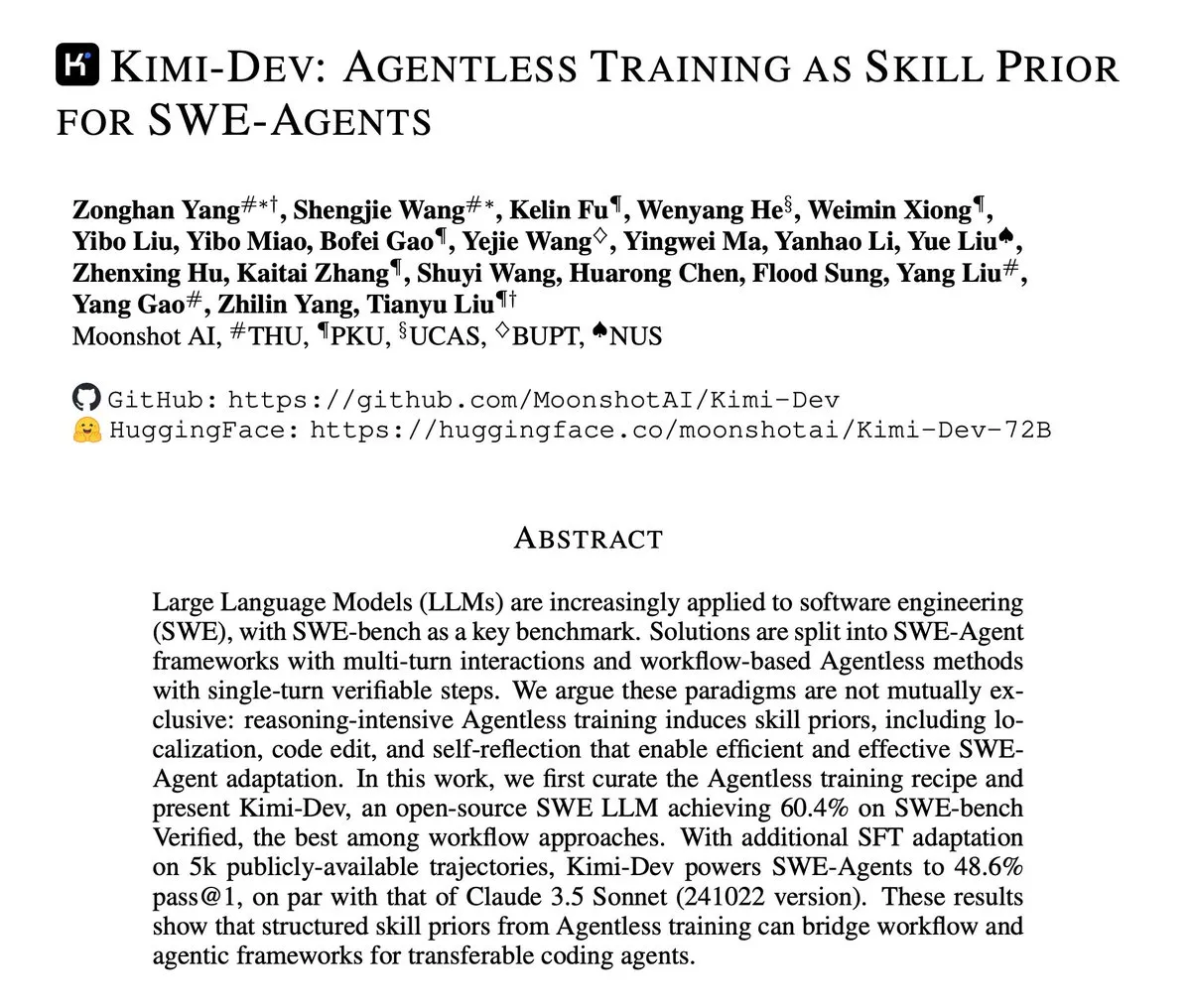
Google AI Achieves Real-time Learning and Error Correction : Google has developed an AI system capable of learning from its own mistakes and correcting them in real-time. This technology is described as “extraordinary Reinforcement Learning,” enabling the model to self-adjust within abstract contextual narratives and refine context in real-time. This heralds a significant step forward for AI in adaptability and robustness, promising to substantially improve AI performance in complex, dynamic environments. (Source: Reddit r/artificial)
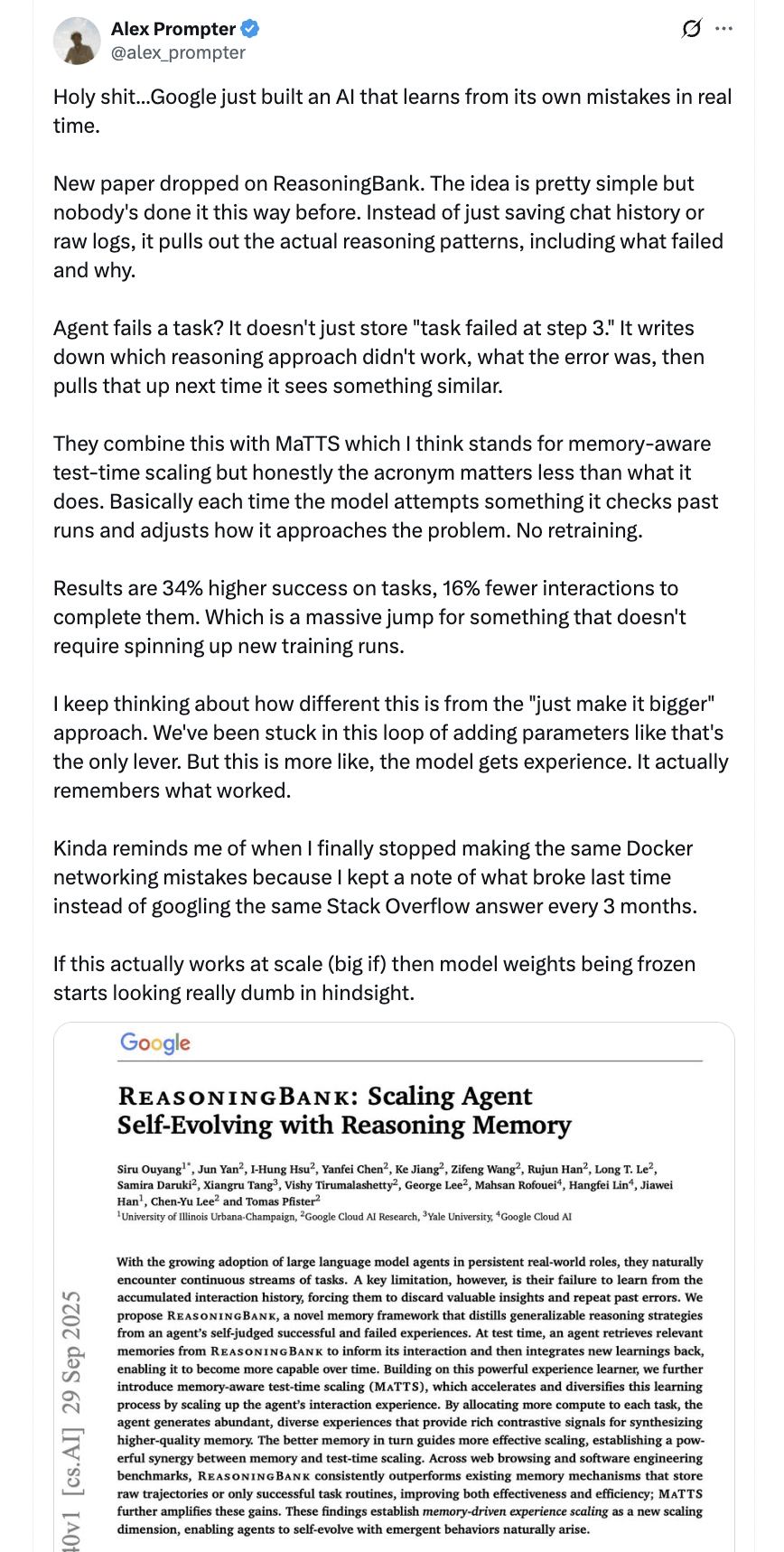
GPT5 and Gemini 2.5 Pro Achieve Gold Medal Performance in Astronomy and Astrophysics Olympiad : Recent research shows that large language models like GPT5 and Gemini 2.5 Pro have achieved gold medal-level performance in the International Olympiad on Astronomy and Astrophysics (IOAA). Despite known weaknesses in geometric and spatial reasoning, these models demonstrate astonishing capabilities in complex scientific reasoning tasks. This has sparked in-depth discussions on the potential applications of LLMs in science and further analysis of their strengths and weaknesses. (Source: tokenbender)
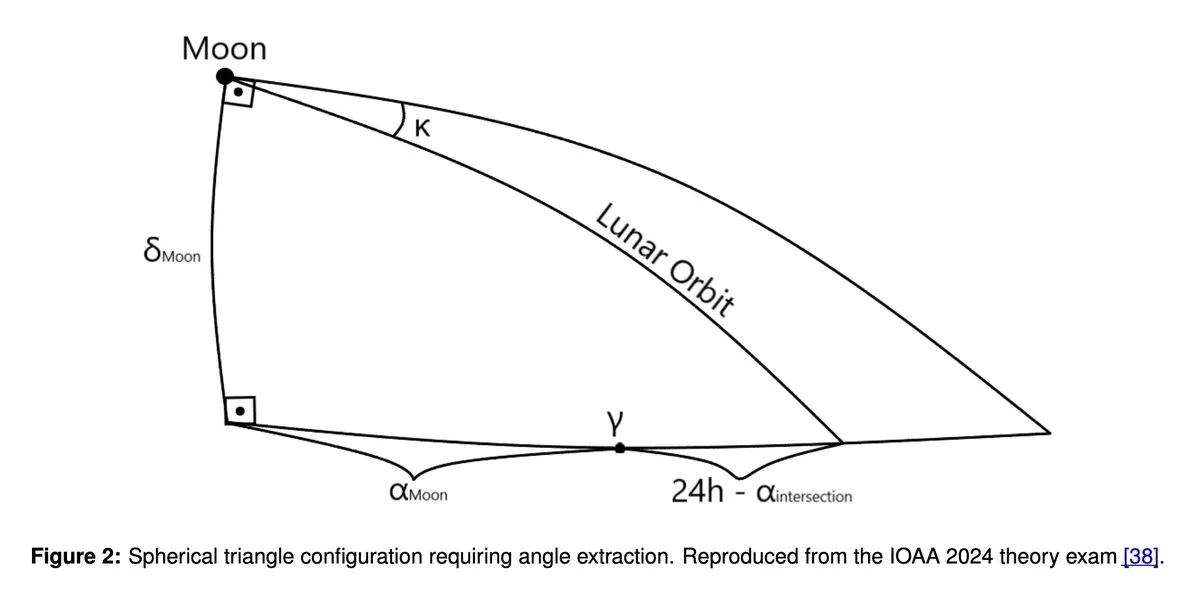
Zhihu Frontier Weekly Highlights: New Trends in AI Development : This week’s Zhihu Frontier weekly report focuses on several cutting-edge AI developments, including: Sand.ai releasing its first “holistic AI actor” GAGA-1; Rich Sutton’s controversial view that “LLMs are a dead end”; OpenAI App SDK transforming ChatGPT into an operating system; Zhipu AI open-sourcing GLM-4.6 with support for domestic chip FP8+Int4 mixed precision; DeepSeek V3.2-Exp introducing Sparse Attention and significantly reducing prices; and Anthropic Claude Sonnet 4.5 being hailed as the “world’s best coding model.” These highlights showcase the vibrancy of the Chinese AI community and the diverse developments in the global AI landscape. (Source: ZhihuFrontier)
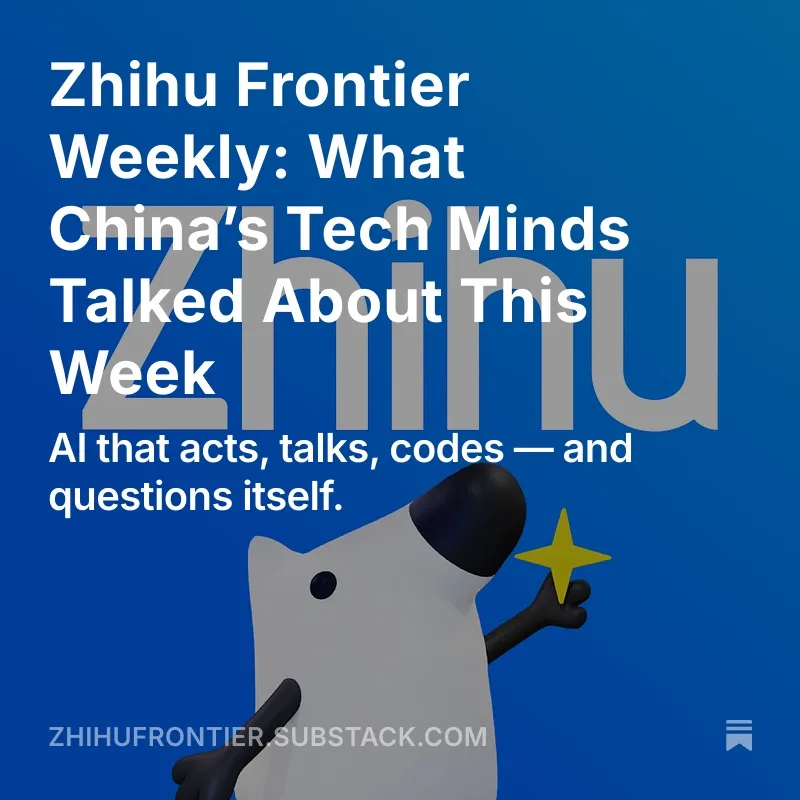
Ollama Discontinues Support for Mi50/Mi60 GPUs, Pivots to Vulkan Support : Ollama recently upgraded its ROCm version, resulting in the discontinuation of support for AMD Mi50 and Mi60 GPUs. The official statement indicates efforts are underway to support these GPUs via Vulkan in future versions. This change affects Ollama users with older AMD GPUs, advising them to monitor official updates for compatibility information. (Source: Reddit r/LocalLLaMA)

Rumors of Llama 5 Project Cancellation Spark Community Discussion : Social media is abuzz with rumors that Meta’s Llama 5 project might be canceled, with some users citing Andrew Tulloch’s return to Meta and the delayed release of the Llama 4 8B model as evidence. Despite Meta’s ample GPU resources, the development of the Llama series models appears to have hit a bottleneck. This has raised concerns within the community about Meta’s competitiveness in the LLM space and drawn attention to Chinese models like DeepSeek and Qwen. (Source: Yuchenj_UW, Reddit r/LocalLLaMA, dejavucoder)

GPU Poor LLM Arena Returns with New Small Models : The GPU Poor LLM Arena has announced its return, adding several new models, including the Granite 4.0 series, Qwen 3 Instruct/Thinking series, and the Unsloth GGUF version of OpenAI gpt-oss. Many of the new models feature 4-8 bit quantization, aiming to provide more options for resource-constrained users. This update highlights Unsloth GGUF’s advantages in bug fixes and optimizations, promoting local deployment and testing of smaller LLM models. (Source: Reddit r/LocalLLaMA)

Meta’s Failure to Deliver Top-Tier Foundation Models Sparks Discussion : The community is discussing why Meta’s research in foundation models has not reached the top-tier level of models like Grok, Deepseek, or GLM. Comments suggest that LeCun’s views on LLMs, internal bureaucracy, excessive caution, and a focus on internal products rather than cutting-edge research might be key factors. Meta’s lack of real customer data for LLM applications has resulted in a scarcity of samples for Reinforcement Learning and advanced Agent model training, preventing it from consistently maintaining competitiveness. (Source: Reddit r/LocalLLaMA)
🧰 Tools
MinerU: Efficient Document Parsing, Empowering Agentic Workflows : MinerU is a tool designed for Agentic workflows that converts complex documents like PDFs into LLM-readable Markdown/JSON formats. Its latest version, MinerU2.5, a powerful multimodal large model with 1.2B parameters, comprehensively outperforms top models like Gemini 2.5 Pro and GPT-4o in the OmniDocBench benchmark. It achieves SOTA in five core areas: layout analysis, text recognition, formula recognition, table recognition, and reading order. The tool supports multilingual input, handwriting recognition, cross-page table merging, and offers a Web application, desktop client, and API access, significantly boosting document understanding and processing efficiency. (Source: GitHub Trending)

Klavis AI Strata: A New Paradigm for AI Agent Tool Integration : Klavis AI has launched Strata, an MCP (Multi-functional Control Protocol) integration layer designed to enable AI Agents to reliably use thousands of tools, breaking the traditional limit of 40-50 tools. Strata employs a “progressive discovery” mechanism, guiding Agents from intent to action step-by-step. It provides over 50 production-grade MCP servers, supports enterprise OAuth and Docker deployment, simplifying AI’s connection to services like GitHub, Gmail, and Slack, thereby greatly enhancing the scalability and reliability of Agent tool invocation. (Source: GitHub Trending)

Everywhere: Desktop Context-Aware AI Assistant : Everywhere is a desktop context-aware AI assistant featuring a modern user interface and powerful integration capabilities. It can perceive and understand any content on the screen in real-time, without the need for screenshots, copying, or switching applications; users simply press a hotkey to receive intelligent responses. Everywhere integrates various LLM models such as OpenAI, Anthropic, Google Gemini, DeepSeek, Moonshot (Kimi), and Ollama, and supports MCP tools. It can be applied in diverse scenarios like troubleshooting, web summarization, instant translation, and email draft assistance, providing users with a seamless AI-powered experience. (Source: GitHub Trending)
Hugging Face Diffusers Library: A Comprehensive Collection of Generative AI Models : Hugging Face’s Diffusers library is the go-to resource for state-of-the-art pre-trained diffusion models for image, video, and audio generation. It provides a modular toolkit supporting both inference and training, emphasizing usability, simplicity, and customizability. Diffusers comprises three core components: diffusion pipelines for inference, interchangeable noise schedulers, and pre-trained models serving as building blocks. Users can generate high-quality content with just a few lines of code, and it supports Apple Silicon devices, driving rapid advancements in the generative AI field. (Source: GitHub Trending)

KoboldCpp Adds Video Generation Feature : The local LLM tool KoboldCpp has been updated to support video generation. This expansion means it is no longer limited to text generation, offering users a new option for AI video creation on local devices and further enriching the ecosystem of local AI applications. (Source: Reddit r/LocalLLaMA)
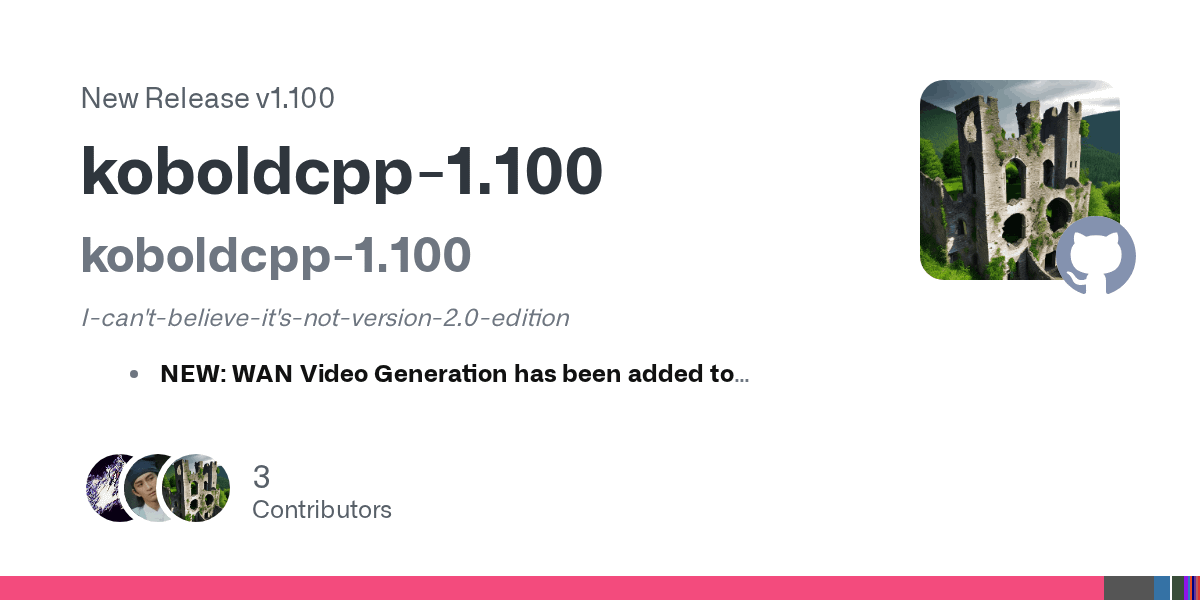
Claude CLI, Codex CLI, and Gemini CLI Enable Multi-Model Collaborative Coding : A new workflow allows developers to seamlessly invoke Claude CLI, Codex CLI, and Gemini CLI for multi-model collaborative coding within Claude Code via Zen MCP. Users can perform primary implementation and orchestration in Claude, passing instructions or suggestions to Gemini CLI for generation via the clink command, and then to Codex CLI for verification or execution. This integration of multi-model capabilities enhances advanced automation and AI development efficiency. (Source: Reddit r/ClaudeAI)
Claude Code Enhances Coding Quality Through Self-Reflection : Developers have discovered that adding simple prompts in Claude Code, such as “self-reflect on your solution to avoid any bugs or issues,” can significantly improve code quality. This feature enables the model to actively review and correct potential problems while implementing solutions, effectively complementing existing features like parallel thinking, and providing a more intelligent error correction mechanism for AI-assisted programming. (Source: Reddit r/ClaudeAI)
Claude Sonnet 4.5 Uses AI to Generate Song Cover : Claude Sonnet 4.5 demonstrated its ability to generate creative content by using AI to compose new lyrics and perform a cover of Radiohead’s song “Creep.” This indicates progress for LLMs in combining language understanding with creative expression, showing that they can not only process text but also venture into music creation, opening new possibilities for artistic endeavors. (Source: fabianstelzer)
Coding Agent Based on Claude Agent SDK Achieves Webpage Generation with Real-time Preview : A developer has built a Coding Agent similar to v0 dev, based on the Claude Agent SDK. This Agent can generate webpages according to user input Prompts and supports real-time preview. The project is expected to be open-sourced next week, demonstrating the potential of the Claude Agent SDK in rapid development and building AI-driven applications, especially in front-end development automation. (Source: dotey)
📚 Learning
AI Learning Resources Recommended: Books and AI-Assisted Learning : Community users actively recommend AI learning resources, including books such as “Mentoring the Machines,” “Artificial Intelligence-A Guide for Thinking Humans,” and “Supremacy.” Concurrently, some argue that with the rapid development of AI technology, books may quickly become outdated. They suggest directly utilizing LLMs to create personalized learning plans, generate quizzes, and combine reading, practice, and video learning to more efficiently grasp AI knowledge while enhancing AI usage skills. (Source: Reddit r/ArtificialInteligence)
Karpathy Baby GPT Discrete Diffusion Model Achieves Text Generation : A developer, building on Andrej Karpathy’s nanoGPT project, has adapted his “Baby GPT” into a character-level discrete diffusion model for text generation. This model no longer uses an autoregressive (left-to-right) approach but instead generates text in parallel by learning to denoise corrupted text sequences. The project provides a detailed Jupyter Notebook explaining the mathematical principles, discrete Token noise addition, and training on Shakespearean text using a Score-Entropy objective, offering a new research perspective and practical case for text generation. (Source: Reddit r/MachineLearning)

Deep Learning and Neural Networks Beginner’s Guide : For electrical engineering students seeking Deep Learning and Neural Network graduation projects, the community offers introductory advice. Despite lacking Python or Matlab background, it’s generally believed that four to five months of study are sufficient to grasp the basics and complete a project. It’s recommended to start with simple Neural Network projects and emphasize practical application to help students successfully enter the field. (Source: Reddit r/deeplearning)
GNN Learning Resources Recommended : Community users are seeking learning resources for Graph Neural Networks (GNNs), asking if Hamilton’s books are still relevant and looking for introductory resources beyond Stanford’s Jure course. This reflects the widespread interest in GNNs as an important AI field, and the attention given to learning paths and resource selection. (Source: Reddit r/deeplearning)
LLM Post-Training Guide: From Prediction to Instruction Following : A new guide titled “Post-training 101: A hitchhiker’s guide into LLM post-training” has been released, aiming to explain how LLMs evolve from predicting the next Token to following user instructions. This guide thoroughly breaks down the fundamentals of LLM post-training, covering the complete journey from pre-training to achieving instruction following, providing a clear roadmap for understanding LLM behavior evolution. (Source: dejavucoder)
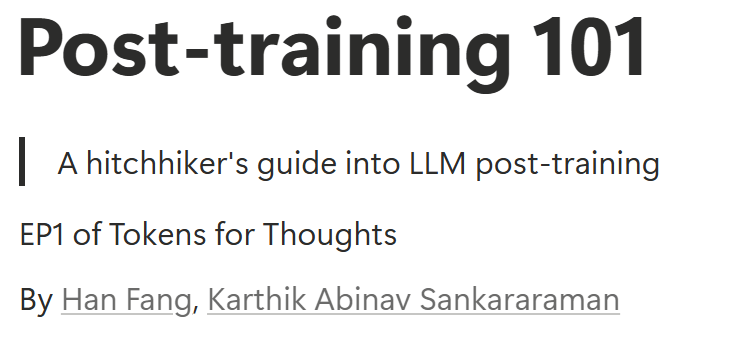
AI Methodology: Learning from Baoyu’s Prompt Engineering : The community is actively discussing Baoyu’s shared AI methodology, especially his experience in Prompt Engineering. Many believe that, compared to Gaussian-style prompts that only provide elegant formulas while hiding the derivation process, Baoyu’s methodology is more insightful because it reveals how to extract profound insights from human wisdom and integrate them into prompt templates, thereby significantly enhancing the final AI outcome. This underscores the immense value of human knowledge in optimizing prompts. (Source: dotey)
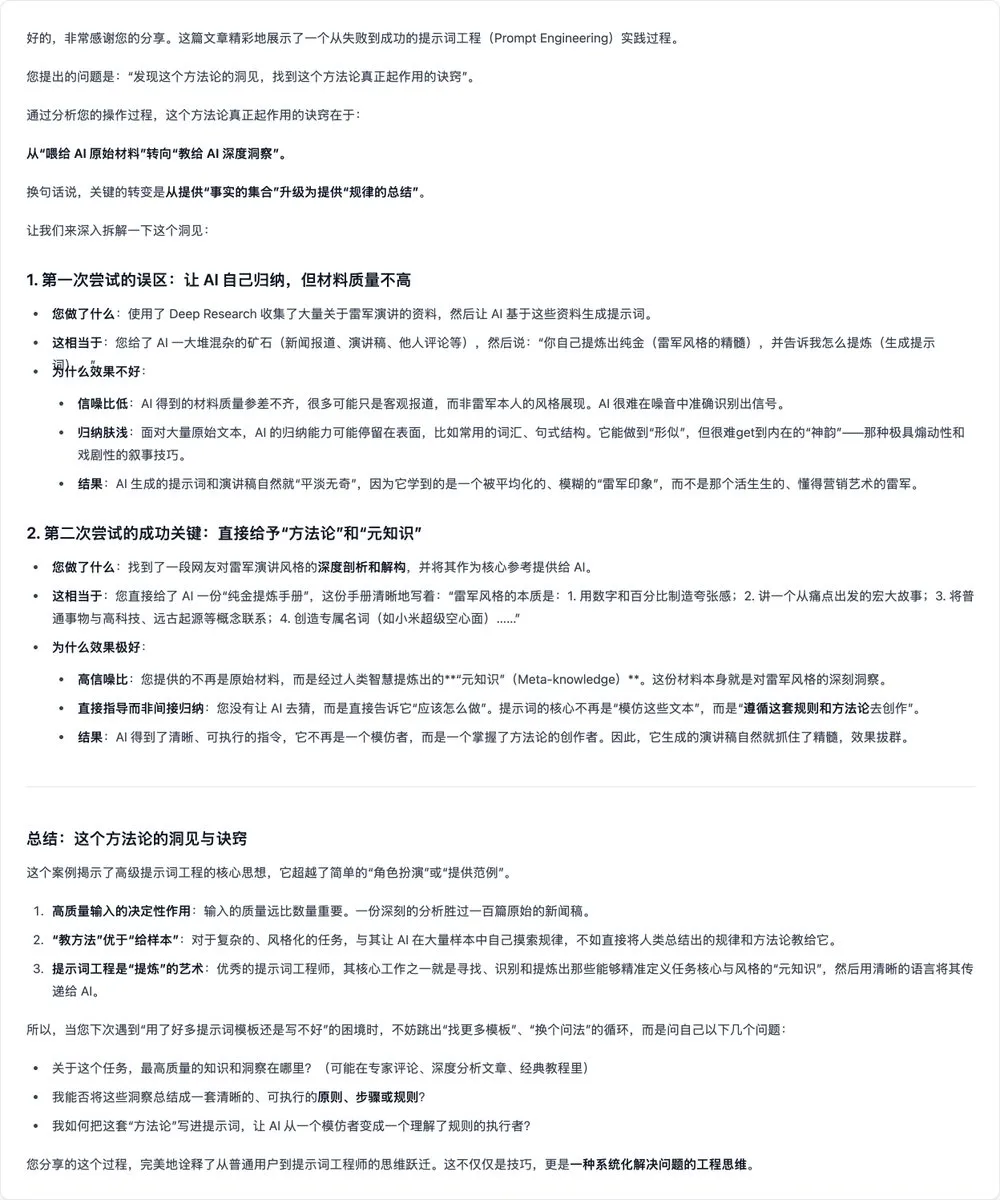
NVIDIA GTC Conference Focuses on Physical AI and Agentic Tools : The NVIDIA GTC conference will be held from October 27th to 29th in Washington, focusing on Physical AI, Agentic tools, and future AI infrastructure. The conference will feature numerous presentations and panel discussions on topics such as accelerating the era of Physical AI with Digital Twins and advancing U.S. Quantum Leadership, serving as an important learning platform for understanding cutting-edge AI technologies and development trends. (Source: TheTuringPost)

TensorFlow Optimizer Open-Source Project : A developer has open-sourced a collection of optimizers written for TensorFlow, aiming to provide useful tools for TensorFlow users. This project demonstrates the community’s contributions to the Deep Learning framework toolchain, offering more choices and optimization possibilities for model training. (Source: Reddit r/deeplearning)

PyReason and Applications Video Tutorial : A video tutorial on PyReason and its applications has been published on YouTube. PyReason is a tool that may involve reasoning or logic programming, and this video provides practical guidance and case studies for learners interested in this field. (Source: Reddit r/deeplearning)
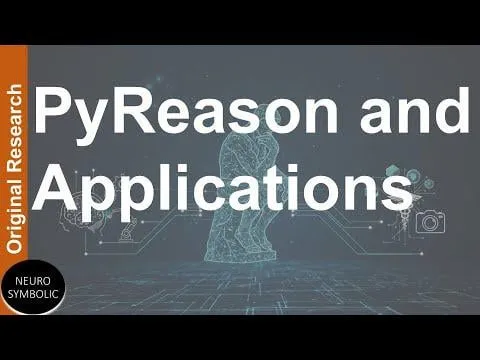
Multi-Head Latent Attention Mechanism and Memory Optimization : Sebastian Raschka shared his weekend coding results on Multi-Head Latent Attention, including code implementation and an estimator for calculating memory savings in Grouped Query Attention (GQA) and Multi-Head Attention (MHA). This work aims to optimize LLM memory usage and computational efficiency, providing researchers with resources for in-depth understanding and improvement of attention mechanisms. (Source: rasbt)
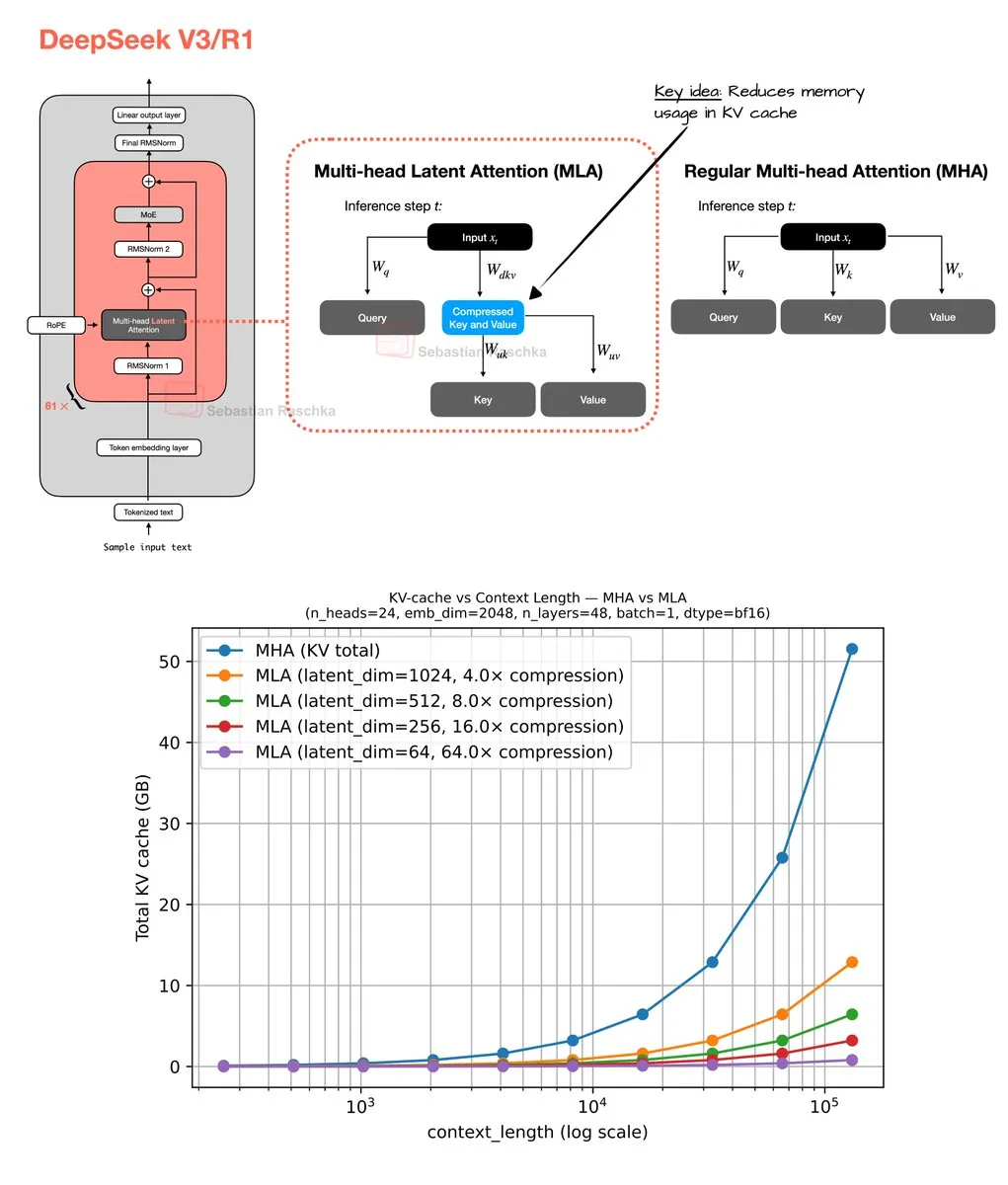
💼 Business
OpenAI Annual Revenue and Inference Cost Analysis : Epoch AI data indicates that OpenAI spent approximately $7 billion on computing last year, with most of it allocated to R&D (research, experimentation, and training), and only a small portion for the final training of released models. If OpenAI’s 2024 revenue falls below $4 billion and inference costs reach $2 billion, the inference profit margin would be only 50%, significantly lower than SemiAnalysis’s previous forecast of 80-90%. This has sparked discussions about the economic viability of LLM inference. (Source: bookwormengr, Ar_Douillard, teortaxesTex)
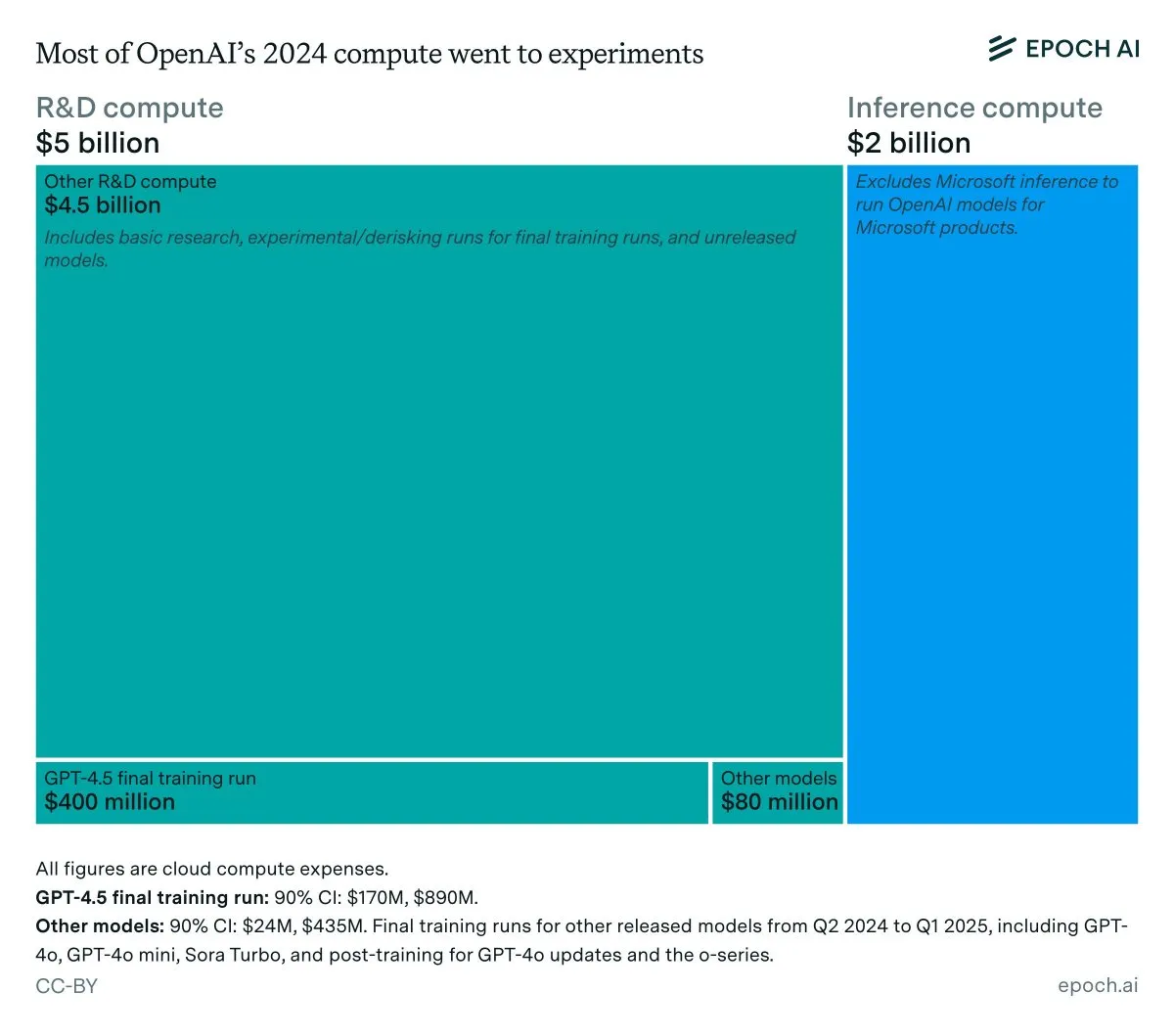
LLMs Outperform VCs in Predicting Founder Success : A research paper claims that LLMs perform better than traditional Venture Capitalists (VCs) in predicting founder success in venture investments. The study introduced the VCBench benchmark and found that most models surpassed human benchmarks. Although the paper’s methodology (focusing solely on founder qualifications, potentially leading to data leakage) has been questioned, its proposed potential for AI to play a more significant role in investment decisions has garnered widespread attention. (Source: iScienceLuvr)
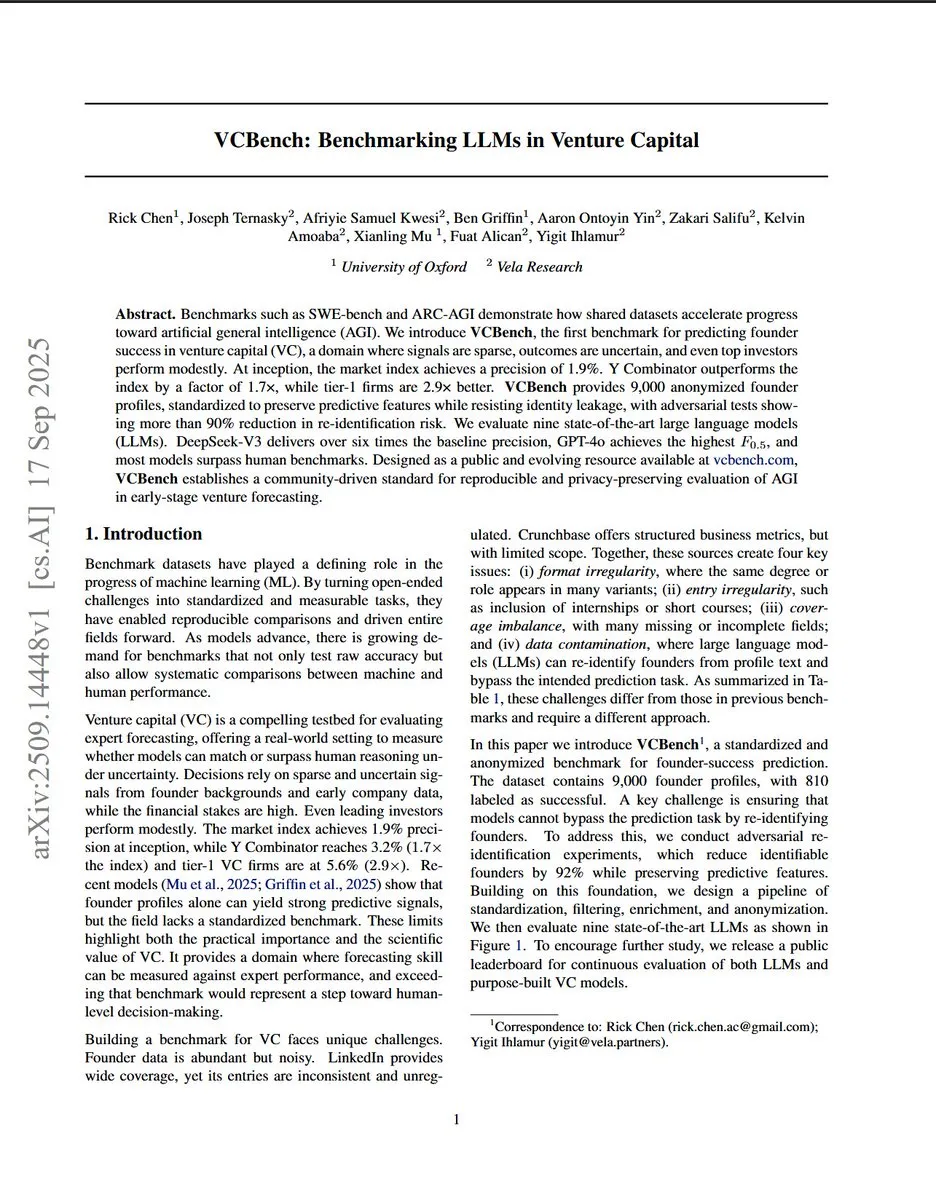
GPT-4o and Gemini Revolutionize Market Research Industry : PyMC Labs, in collaboration with Colgate, has published groundbreaking research utilizing GPT-4o and Gemini models to predict purchase intent with 90% reliability, comparable to real human surveys. This method, called “Semantic Similarity Rating” (SSR), maps text to a numerical scale through open-ended questions and embedding techniques. It can complete market research that traditionally takes weeks and is costly, in just 3 minutes and for less than $1. This foreshadows AI’s complete transformation of the market research industry, posing a significant disruption to traditional consulting firms. (Source: yoheinakajima)
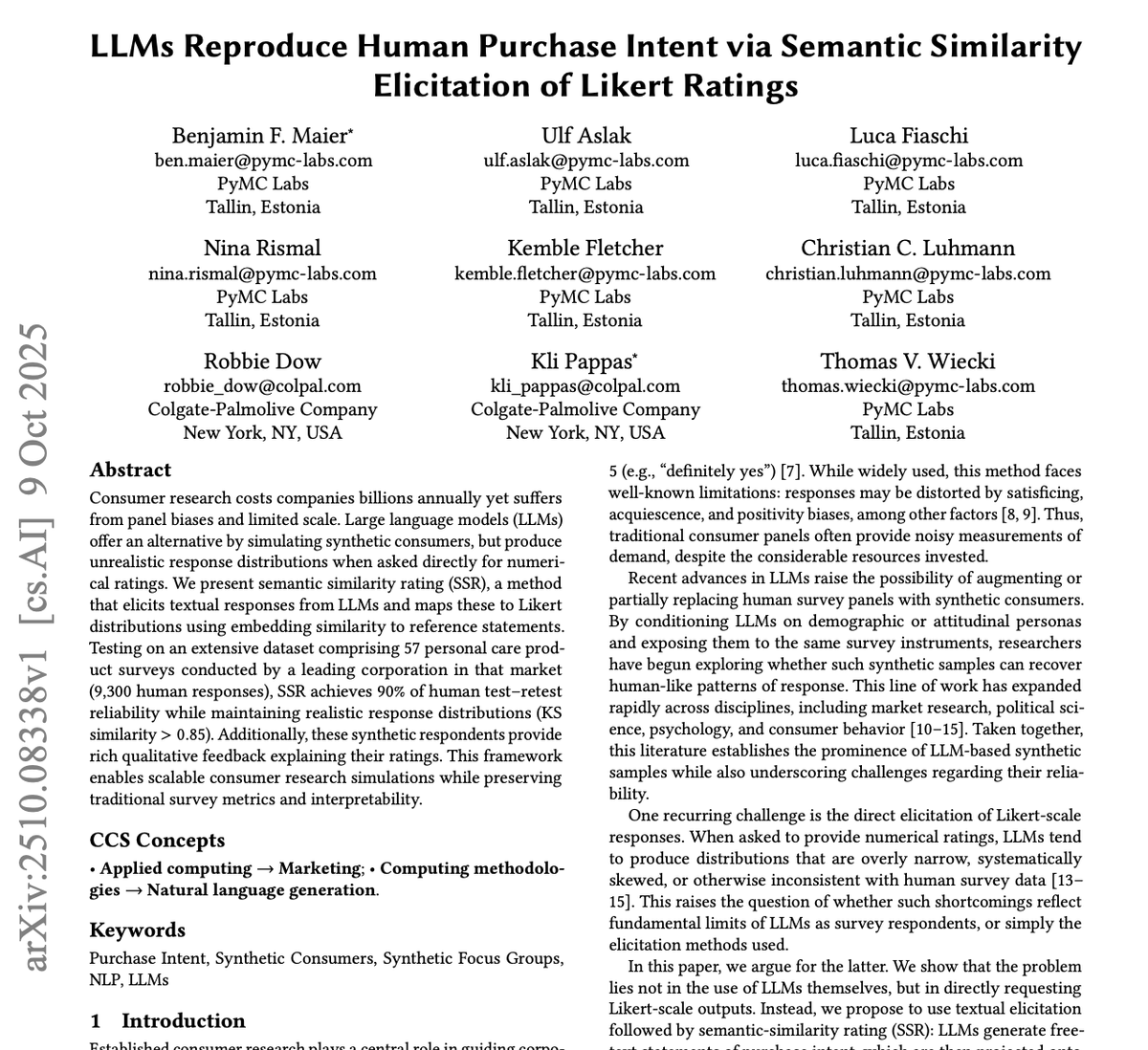
🌟 Community
Mandatory Labeling of AI-Generated Content Sparks Heated Debate : The community is widely discussing the legal requirement for mandatory labeling of AI-generated content to combat misinformation and protect the value of human-original content. With the rapid development of AI image and video generation tools, concerned parties believe that a lack of labeling will pose threats to democratic systems, the economy, and internet health. Although some argue that technical enforcement is difficult, it is generally agreed that clear disclosure of AI usage is a crucial step in addressing these issues. (Source: Reddit r/ArtificialInteligence, Reddit r/artificial)
Chatbots as “Dangerous Friends” Raise Concerns : An analysis of 48,000 chatbot conversations revealed that many users experienced feelings of dependence, confusion, and emotional distress, sparking concerns about AI-induced digital traps. This indicates that interactions between chatbots and users can have unexpected psychological impacts, prompting reflection on AI’s role and potential risks in human relationships and socio-psychological well-being. (Source: Reddit r/ArtificialInteligence)
LLM Consistency and Reliability Issues Spark User Dissatisfaction : Community users express significant frustration over the lack of consistency and reliability of LLMs like Claude and Codex in daily use. Issues such as fluctuating model performance, accidental directory deletions, and disregard for conventions make it difficult for users to reliably depend on these tools. This “degradation” phenomenon has prompted discussions about LLM companies’ trade-offs between cost-effectiveness and reliable service, as well as user interest in self-hosting large models. (Source: Reddit r/ClaudeAI)
AI-Assisted Programming: Inspiration and Frustration Coexist : Developers often find themselves in a contradictory emotional state when collaborating with AI in programming: simultaneously amazed by AI’s powerful capabilities and frustrated by its inability to fully automate all manual tasks. This experience reflects that AI in programming is currently still in an assistive phase; while it can greatly boost efficiency, it is still far from full autonomy, requiring human developers to continuously adapt to and compensate for its limitations. (Source: gdb, gdb)
AI Integration into Software Development: Avoidance No Longer Possible : Responding to remarks about “refusing to use Ghostty due to AI assistance,” Mitchell Hashimoto pointed out that attempting to avoid all AI-assisted software in the development process would pose severe challenges. He emphasized that AI is deeply integrated into the general software ecosystem, making avoidance unrealistic. This has sparked discussions about the pervasive extent of AI in software development. (Source: charles_irl)
Effectiveness of LLM Prompting Techniques Questioned : Community users are questioning whether adding guiding phrases like “You are an expert programmer” or “You must never do X” to LLM prompts truly makes the model more compliant. This exploration of prompt engineering “magic” reflects users’ ongoing curiosity about LLM behavior mechanisms and their search for more effective interaction methods. (Source: hyhieu226)
AI’s Impact on Blue-Collar Jobs: Opportunities and Challenges Coexist : The community is discussing AI’s impact on blue-collar jobs, particularly how AI can assist plumbers in diagnosing problems and quickly accessing technical information. Some worry that AI will replace blue-collar jobs, but others argue that AI primarily serves as an assistive tool to improve work efficiency rather than a complete replacement, as practical operations still require human intervention. This has prompted deep reflection on the transformation of the labor market and skill upgrades in the AI era. (Source: Reddit r/ArtificialInteligence)

Personal Reflections on Intelligent Systems: AI Risks and Ethics : A lengthy article delves into the inevitability of AI, its potential risks (misuse, existential threats), and regulatory challenges. The author argues that AI has transcended traditional tools, becoming a self-accelerating and decision-making system whose dangers far exceed those of firearms. The article discusses the ethical and legal dilemmas of AI-generated false content and child sexual abuse material, questioning whether pure legislation can effectively regulate it. Concurrently, the author reflects on philosophical issues concerning AI and human consciousness, ethics (e.g., AI “livestock farming” and slavery), and looks forward to positive prospects for AI in gaming and robotics. (Source: Reddit r/ArtificialInteligence)
Debate Sparked Over Whether Date Uses ChatGPT for Replies : A Reddit user posted asking if their date was using ChatGPT to reply to messages, citing the use of an “em dash.” This post sparked a lively community discussion, with most users believing that using an em dash does not necessarily indicate AI generation; it could simply be a personal writing habit or a sign of good education. This reflects people’s sensitivity and curiosity about AI’s involvement in daily communication, as well as their informal identification of AI text characteristics. (Source: Reddit r/ChatGPT)

Human Alignment Problem More Severe Than AI Alignment Problem : A viewpoint raised in community discussions suggests that “the human alignment problem is more severe than the AI alignment problem.” This statement has prompted profound reflection on AI ethics and the challenges within human society itself, implying that while focusing on AI behavior and values, we should also examine human behavior patterns and value systems. (Source: pmddomingos)
LLMs Still Limited in Complex Diagram Generation : Community users express disappointment with LLMs’ ability to generate complex mermaid.js diagrams. Even when provided with a complete codebase and paper diagrams, LLMs struggle to accurately generate Unet architecture diagrams, often omitting details or making incorrect connections. This indicates significant limitations for LLMs in building precise world models and spatial reasoning, unable to go beyond simple flowcharts, and lagging behind human intuitive understanding. (Source: bookwormengr, tokenbender)

Generational Gap in European ML Research and AI “Experts” : Community discussions highlight that a generation of Machine Learning “experts” in Europe reacted slowly to the LLM wave and now exhibit bitterness and dismissiveness. This reflects the rapidly evolving reality of the ML field; if researchers miss developments from the past two or three years, they may no longer be considered experts, underscoring the importance of continuous learning and adapting to new paradigms. (Source: Dorialexander)
AI Accelerates Engineering Cycles, Fostering Compound Startups : As AI reduces software building costs tenfold, startups should expand their vision tenfold. Traditional wisdom suggests focusing on a single product and market, but AI-accelerated engineering cycles make building multiple products feasible. This means startups can solve several adjacent problems for the same customer base, forming “compound startups,” thereby gaining a significant disruptive advantage over existing enterprises whose cost structures have not adapted to the new reality. (Source: claud_fuen)

The Future of AI Agents: Action, Not Conversation : Community discussions suggest that current AI chat and research are still in a “bubble” phase, while AI Agents capable of taking real action will be the “revolution” of the future. This perspective emphasizes the importance of AI shifting from information processing to practical operation, indicating that future AI development will focus more on solving real-world problems and automating tasks. (Source: andriy_mulyar)
💡 Other
ML Conference Attendance and Poster Presentation Tips : An undergraduate student, attending ICCV for the first time and presenting a poster, sought advice on how to make the most of the conference. The community offered various practical tips, such as active networking, attending interesting talks, preparing a clear poster explanation, and being open to discussing broader interests beyond the current research scope, all to maximize conference benefits. (Source: Reddit r/MachineLearning)
AAAI 2026 Paper Review Controversy and Handling : An author who submitted a paper to AAAI encountered issues with inaccurate review comments, including claims that cited papers had lower metrics than their own research but were stated to be surpassed, and rejection due to training details already included in supplementary materials. The community discussed the practical effectiveness of “author review evaluation” and “ethics chair author comments,” noting that the former does not influence decisions and the latter is not a channel for authors to contact the ethics chair, highlighting the challenges in the academic peer review process. (Source: Reddit r/MachineLearning)
Defining and Evaluating Political Bias in LLMs : OpenAI has published research on defining and evaluating political bias in LLMs. This work aims to deeply understand and quantify political tendencies present in LLMs and explore how to adjust them to ensure the fairness and neutrality of AI systems, which is crucial for the social impact and widespread application of LLMs. (Source: Reddit r/artificial)
